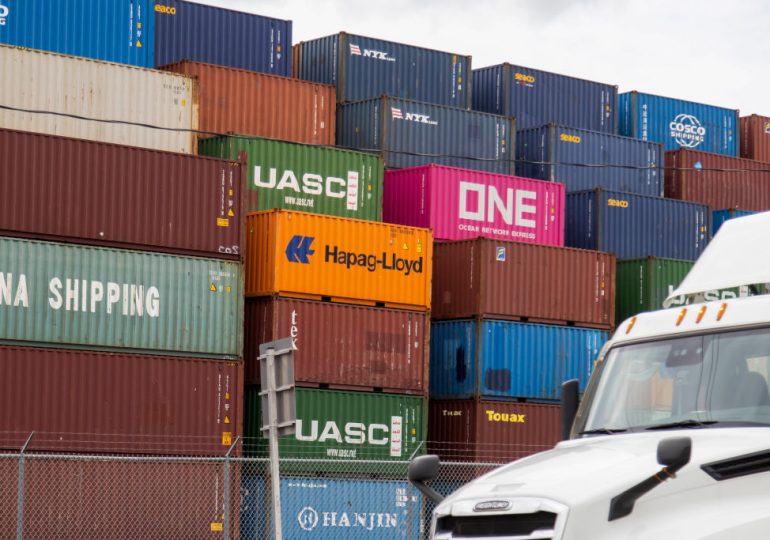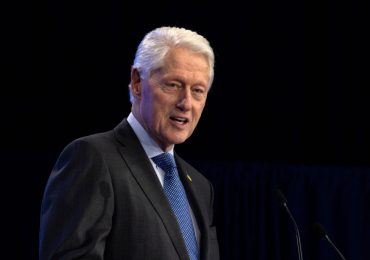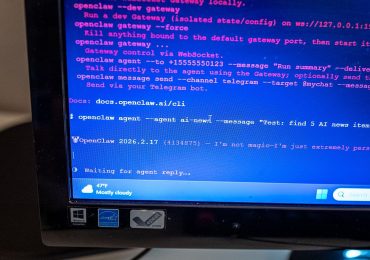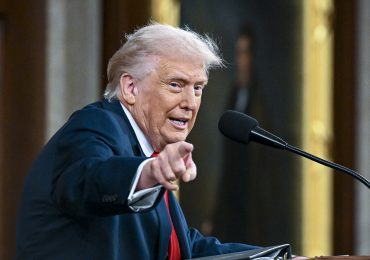Dockworkers are set to walk out of every major port on the U.S. East and Gulf coasts, marking the beginning of a strike that could ripple through the world’s largest economy and cause political turmoil just weeks before the presidential election.
The affected ports have the combined capacity to handle as much as half of all U.S. trade volumes, and the strike will halt container cargo and auto shipments. Energy supplies and bulk cargo like municipal waste and road salt won’t be affected. Some exceptions will be made to allow for the movement of military goods and cruise ships.
[time-brightcove not-tgx=”true”]
The significance of a work stoppage at every major container port from Houston to Miami and New York-New Jersey depends on how long the strike lasts. The economic loss from the shutdown, which was set to start at 12:01 Tuesday morning Eastern Standard Time, will be between $3.8 billion to $4.5 billion a day, according to JPMorgan Chase & Co.
Read More: What Workers Across the U.S. Can Learn From the WGA Strike
A backup resulting from a week-long strike would take about a month to clear, according to Grace Zwemmer at Oxford Economics.
The International Longshoremen’s Association is seeking higher wages and a rollback of the language on automation in six-year contract that expired at midnight. Union leader Harold Daggett has for months threatened a strike starting on Oct. 1 if no deal is reached before the deadline. The last time East and Gulf coast dockworkers went on strike was in 1977.
The ocean carriers and terminal operators represented by the U.S. Maritime Alliance, also known as USMX, have accused the ILA of refusing to negotiate since the union called off talks back in June. A strike was all but certain until Monday afternoon, when reports emerged that the White House has been in communication with the two sides over the weekend and some progress has been made on wages.
President Joe Biden, who prides himself on being pro-union, has said the dispute is a matter for collective bargaining and he wouldn’t invoke his authority under national security laws to order dockworkers back to the ports while negotiations continue.
Trade, transportation and retail industry groups have been urging the White House to intervene to prevent or stop a strike.
“It would be unconscionable to allow a contract dispute to inflict such a shock to our economy,” Suzanne Clark, CEO of the U.S. Chamber of Commerce, wrote in a letter to Biden on Monday. “Taft-Hartley would provide time for both parties in negotiation to reach a deal on a new labor contract,” Clark continued, referring to the 1947 congressional act that allows a president to intervene in labor disputes that involved national security.
Read More: Kamala Harris Rolled Out An Ambitious Economic Plan. Here’s What’s In It
ILA leader Daggett has warned the White House not to intervene, and said if forced back to the ports, dockworkers would handle fewer containers than usual, slowing operations.
The union hasn’t endorsed a presidential candidate, though according to Daggett, former President Donald Trump, “promised to support the ILA in its opposition to automated terminals” during a Mar-a-Lago meeting last fall. Neither Trump nor Vice President Kamala Harris has drawn public attention to the strike threat.
Earlier on Monday, New York Governor Kathy Hochul urged people not to rush out to grocery stores to stockpile supplies as they did during the pandemic. “The food supply is secure right now,” she said. While there are supplies and consumer goods in warehouses, residents could start seeing depleted store shelves if there’s a prolonged stoppage of a few weeks.
Meanwhile, the flow of goods has already been impacted by the threat of disruption. Many importers brought their goods in early or through West Coast ports to mitigate the risk. Port terminals up and down the coasts have been winding down operations ahead of the midnight deadline, and railroads are also pulling back service.
“The most important thing is going to be for the carriers, shippers and workers to come to terms,” said Transportation Secretary Pete Buttigieg on Bloomberg Television’s “Balance of Power.” “There’s really no substitute for the ports being up and running.”
Leave a comment








